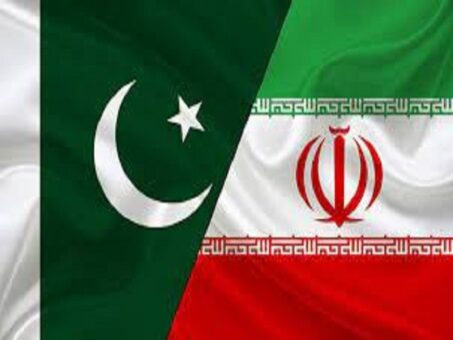Islamabad, September 16, 2025 – The 22nd Session of the Pakistan-Iran Joint Economic Commission (JEC) concluded in Tehran with the signing of significant protocols aimed at boosting bilateral cooperation and achieving a $10 billion trade target.
Both countries reaffirmed their determination to strengthen economic, cultural, and political ties, while laying out a roadmap for sustainable collaboration across multiple sectors.
The high-level meeting was co-chaired by Pakistan’s Federal Minister for Commerce, Jam Kamal Khan, and Iran’s Minister for Roads and Urban Development, Farzaneh Sadeq. The session reviewed the entire spectrum of bilateral relations and emphasized enhanced cooperation in trade, investment, energy, transportation, agriculture, health, education, and cultural exchanges. The signing of protocols at the conclusion underscored the seriousness of both governments in translating commitments into actionable projects.
Technical sessions were led by Muhammad Humair Karim, Secretary of Pakistan’s Ministry of Economic Affairs, and Dr. Amin Taraffo, Senior Advisor to the Iranian Minister of Roads and Urban Development. Supported by their expert teams, both sides conducted exhaustive discussions and finalized a detailed draft protocol.
A key outcome was the reaffirmation of the long-term goal of achieving $10 billion in annual trade. To realize this vision, both sides agreed to address tariff and non-tariff barriers, operationalize border markets, and encourage regular business-to-business (B2B) engagements. The plan also includes measures to facilitate customs procedures and introduce streamlined visa regimes for traders, transporters, and drivers.
Energy cooperation emerged as another cornerstone of the talks. The two nations agreed to strengthen electricity exchanges, resume work on the 220 KV transmission line to Gwadar, and explore joint renewable energy ventures. A Joint Working Group will spearhead collaboration in power generation, water resource management, and sustainable urban development.
On the agricultural front, Pakistan and Iran pledged to work together on veterinary health standards, pest control, seed technology, and climate resilience projects. Both countries also recognized the urgency of tackling shared environmental challenges such as sandstorms, droughts, and mangrove preservation.
Transport and connectivity received strong attention, with commitments to boost road, rail, air, and maritime links. Discussions included increasing rail freight volumes, enhancing air navigation services, and introducing passenger ferry services, particularly for Zaireen traveling between ports.
Cultural, educational, and health cooperation was also advanced. Plans for joint cultural festivals, media collaborations, academic partnerships, and student exchanges were endorsed. Agreements on pharmaceutical registration, disease surveillance, and medical training will expand health sector cooperation, while vocational training initiatives aim to equip youth for emerging industries.
Speaking at the closing session, Minister Jam Kamal Khan praised the spirit of partnership, stressing that Pakistan valued its long-standing ties with Iran. He highlighted people-to-people exchanges, tourism development, and joint action on climate change as vital areas of collaboration.
His counterpart, Minister Farzaneh Sadeq, reaffirmed Iran’s commitment to deepening economic integration with Pakistan, particularly in trade, transport corridors, and infrastructure. She emphasized that regional connectivity projects would not only benefit Pakistan and Iran but also strengthen the wider region’s economic prospects.
The Ministry of Economic Affairs of Pakistan expressed gratitude to Iran for hosting the session and reiterated that the progress achieved would pave the way for even deeper collaboration when the 23rd JEC meets in Islamabad.
